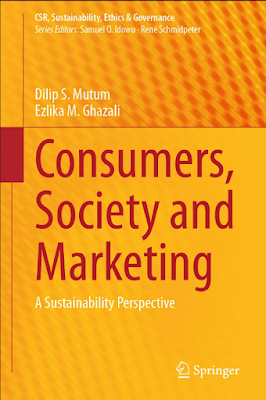Someone recently asked me what 'Halal Products' actually means.
I feel that I am quite qualified to answer this question even though I am not an Islamic scholar.
The term 'halal' means acceptable based on Islamic values. Halal principles emphasise following Islamic guidelines in hygiene, purity, safety, production,
manufacturing, processing, and the serving of food and other products (Ghazali et al., 2022; Mutum and Ghazali, 2014).
Halal products are a form of religion-compliant products. In other words, they are Sharia or Islamic law compliant (Al-hajla et al., 2019).
Products which are not Halal are Haram and includes food items that are prohibited by religious dietary laws (e.g., alcohol and pork) (Ghazali et al., 2022). However, Halal products are not restricted to food, and it now covers banking and finance, fashion, travel, media, pharmaceuticals, cosmetics and even technology.
There are various organisations in different countries which are responsible for the official certification of a product as Halal. This includes the Department of Islamic Development Malaysia (Jabatan Kemajuan Islam Malaysia or JAKIM). Halal Certification Organisation (HCO) and Halal Food Authority (HFA) are independent halal certification bodies in the UK.
In the past, I have expressed my concerns with the marketing practices of numerous Islamic and halal labelled products and companies which have entered the market. Consumers have begun to realise that Islamic-branded products and companies do not necessarily translate into good quality products or business success. The negative stories and other fraud cases related to Islamic and halal labelled products can eventually be detrimental to general trust in these labels (Ghazali & Mutum, 2016).
REFERENCES:
Ghazali, E., Mutum, D., Waqas, M., Taha, A.Z. and Mohtar, M. (2022). Factors influencing the potential adoption of portable pork DNA detection device, Journal of Islamic Marketing, https://doi.org/10.1108/JIMA-05-2022-0129 [ABDC B/ SCOPUS].
Ghazali, E.M. Mutum, D.S., Waqas, M., Nguyen, B. and Ahmad-Tarmizi, N.A. (2022). Restaurant choice and religious obligation in the absence of halal logo: A serial mediation model, International Journal of Hospitality Management, 101, 103109 https://doi.org/10.1016/j.ijhm.2021.103109 [ABDC A*/ SCOPUS/ WOS/ AJG 3].
Al-hajla, A.H., Nguyen, B., Melewar, T.C., Jayawardhena, C., Mutum, D. and Ghazali, E. (2019). Understanding the adoption of new religion-compliant products (NRCP) in Islamic markets. Journal of Global Marketing, 32(4), 288-302. [CABS 1/ ABDC B/ SCOPUS]
Butt, M., de-Run, E., U-Din, A. and Mutum, D., (2018). Religious symbolism in Islamic financial service advertisements, Journal of Islamic Marketing, 9(2), 384-401. [ABDC B/ SCOPUS] Selected by the editorial team as Highly Commended in the 2019 Emerald Literati Awards.
Ghazali, E. & Mutum, D.S. (2016). Islamic Marketing: Compatibility with Contemporary Themes in Marketing, In: Mutum, D.S., Butt, M.M. and Rashid, M., eds., Advances in Islamic Finance, Marketing, and Management: An Asian Perspective, 217-226, Emerald Group Publishing Limited.
Mutum, D. S. & Ghazali, E. (2014). Case Study 4: Ikea Malaysia and the Halal Food Crisis, In Dilip Mutum et al. (Eds), Marketing Cases from Emerging Markets, 31-33, Springer.

